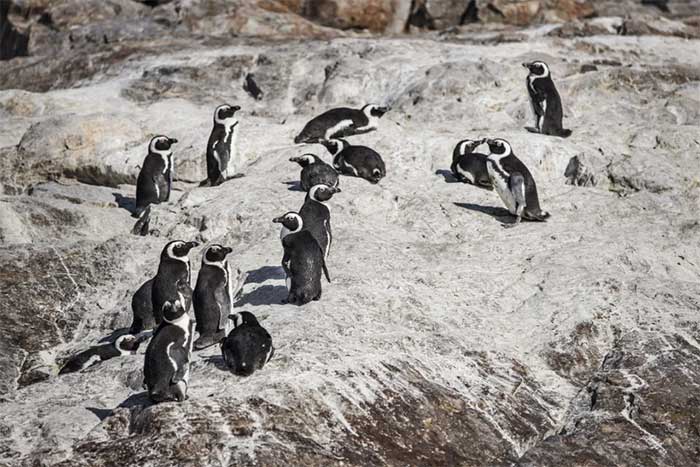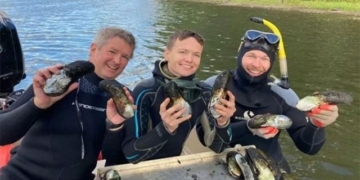Researchers discovered the remains of 35 penguins in the Falkland Islands in the South Atlantic on January 19, with two of the carcasses testing positive for the H5N1 virus.
According to the Scientific Committee on Antarctic Research (SCAR), the H5N1 avian influenza strain has been found in Gentoo penguins for the first time, raising concerns that the virus could spread among penguin populations in Antarctica.

The H5N1 avian influenza virus has been found in Gentoo penguins. (Photo illustration: AFP/TTXVN).
Veterinary doctor Ralph Vanstreels at SCAR stated that researchers found the remains of 35 penguins in the Falkland Islands on January 19. Samples collected from two of these penguin carcasses tested positive for the H5N1 virus.
A spokesperson for the Falkland Islands government, Sally Heathman, confirmed that as of January 30, over 200 juvenile Gentoo penguins, along with some adults, have died under similar circumstances.
This figure indicates that Gentoo penguins are susceptible to this deadly disease, and the H5N1 virus has been devastating bird populations worldwide in recent months.
The island authorities are currently awaiting test results from samples taken from Rockhopper penguins and are planning a response to a potential large-scale outbreak, as the dense congregation of hundreds of thousands of penguins in Antarctica and surrounding islands is one of the factors increasing the risk of H5N1 transmission.
However, Dr. Vanstreels, who is also a researcher collaborating with the University of California-Davis, emphasized that Gentoo penguins rarely move between the Falkland Islands off the coast of Argentina and the Antarctic Peninsula, which is located 1,300 km to the south. This means there is little possibility for the avian influenza virus to spread to the southern part of Antarctica.
On the same day, Meagan Dewar, head of the Antarctic Wildlife Care Department at SCAR, reported that in nearby South Georgia, authorities have dismissed concerns about avian influenza appearing in king penguins following a detailed survey of the area.
Meanwhile, Mr. Vanstreels noted that conservationists are also concerned about many other animal species.
Notably, a large number of elephant seals and seal pups have died from avian influenza in South Georgia following a mass mortality event among these species in South America.
According to him, this is particularly concerning as South Georgia is home to 95% of the world’s Antarctic fur seals. If that population declines significantly, these species will fall into a state of emergency.



















































